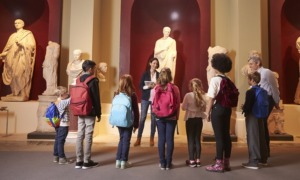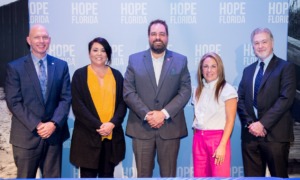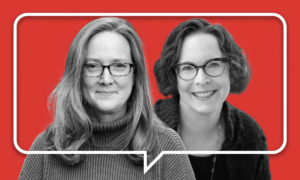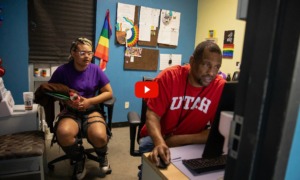At a recent dropout prevention conference in New York state, a panel of five teenagers shared their ideas about what it would take to help all students succeed in school. One of these young people stands out most dramatically in my mind, mainly because of the juxtaposition between how he appeared and what he said.
The street-wise look included baggy jeans, faded T-shirt and do-rag – in contrast to his fellow panelists, who had gotten all scrubbed up for the occasion. His cool demeanor didn’t quite prepare me for his message: that the key ingredient of dropout prevention is positive adult-youth relationships. This young man made an impassioned plea to the largely professional audience to realize that today’s teenagers are “aching for adults” who can provide them with needed guidance and support.
This brief but compelling comment served as a poignant reminder of something we may be taking for granted in youth work. The idea that adult-youth relationships are central to our work is so basic that at times we may lose sight of its fundamental truth. Yet new research supports the point, and new modes of practice are emerging that build on this key element of our service.
Recent research on high-quality after-school programs has confirmed the contribution of youth-adult relationships to promoting positive youth development. For example, a June 2008 study of programs serving high school youth in New York City (Evaluation of the New York City Department of Youth and Community Development Out-of-School Time Programs for Youth Initiative, Policy Studies Associates) found that participants’ relationships with staff were an essential feature of programs that produced positive social and educational benefits. Staffers in these results-oriented programs said they intentionally talked with young people about their personal lives, their grades and their aspirations for the future, and that they conducted individualized outreach, demonstrating their caring and concern. “We text all the time, and that brings them in,” said one outreach leader.
In this study, one young person reported: “The staff are really cool; very close to our age. You can really talk with them.” Youth speak of strong personal ties with their youth workers, noting that staffers give useful advice, treat them with respect, help them learn new things and “understand what I am going through.”
Earlier research by Policy Studies Associates about high-performing after-school programs (in 2005) pinpointed crucial staff behaviors that contributed to program quality and outcomes, including staff ability to model positive behaviors, listen to youth, promote skill mastery, provide individualized feedback and establish expectations of mutual respect.
A subsequent study of the Philadelphia Beacons school-based community centers (Quality Time After School, Public/Private Ventures, 2007) found that specific staff skills – such as managing group dynamics to foster respect and supporting youth learning – contributed to youths’ favorable perceptions of their program experience.
Youth workers can play a variety of roles that allow them to interact with young people regularly and effectively. In addition to the more traditional roles of group leader, instructor and mentor, several programs around the country are experimenting with an approach known as life coach. This role focuses on helping young people develop and pursue education and career aspirations. Life coaches also orchestrate a range of critical resources and help build resiliency skills.
This relationship-centered approach finds a practical application for a solid body of research, particularly that of Edmund Gordon of Columbia University’s Teachers College. His valuable book, Supplementary Education, has called attention to the key, and often unrecognized, work done by many middle- and upper-class parents to organize positive developmental experiences for their children. One task of the life coach is to ensure that all children have access to such experiences, in ways that enhance the contributions of school and family.
At The Children’s Aid Society in New York, our new African-American Male Initiative is integrating life coaches into the lives of elementary-age boys. Specially trained African-American male social workers act as “personal trainers for the mind.” These life coaches work with boys individually and in groups from elementary school through high school graduation and beyond, involving themselves with all aspects of the youths’ lives, including school, family and community. They concentrate on helping young people develop action plans directed toward a positive future.
They’re consistent, caring, competent – just the kind of adults kids seem to be aching for.
Jane Quinn is assistant executive director for community schools at The Children’s Aid Society in New York.






























